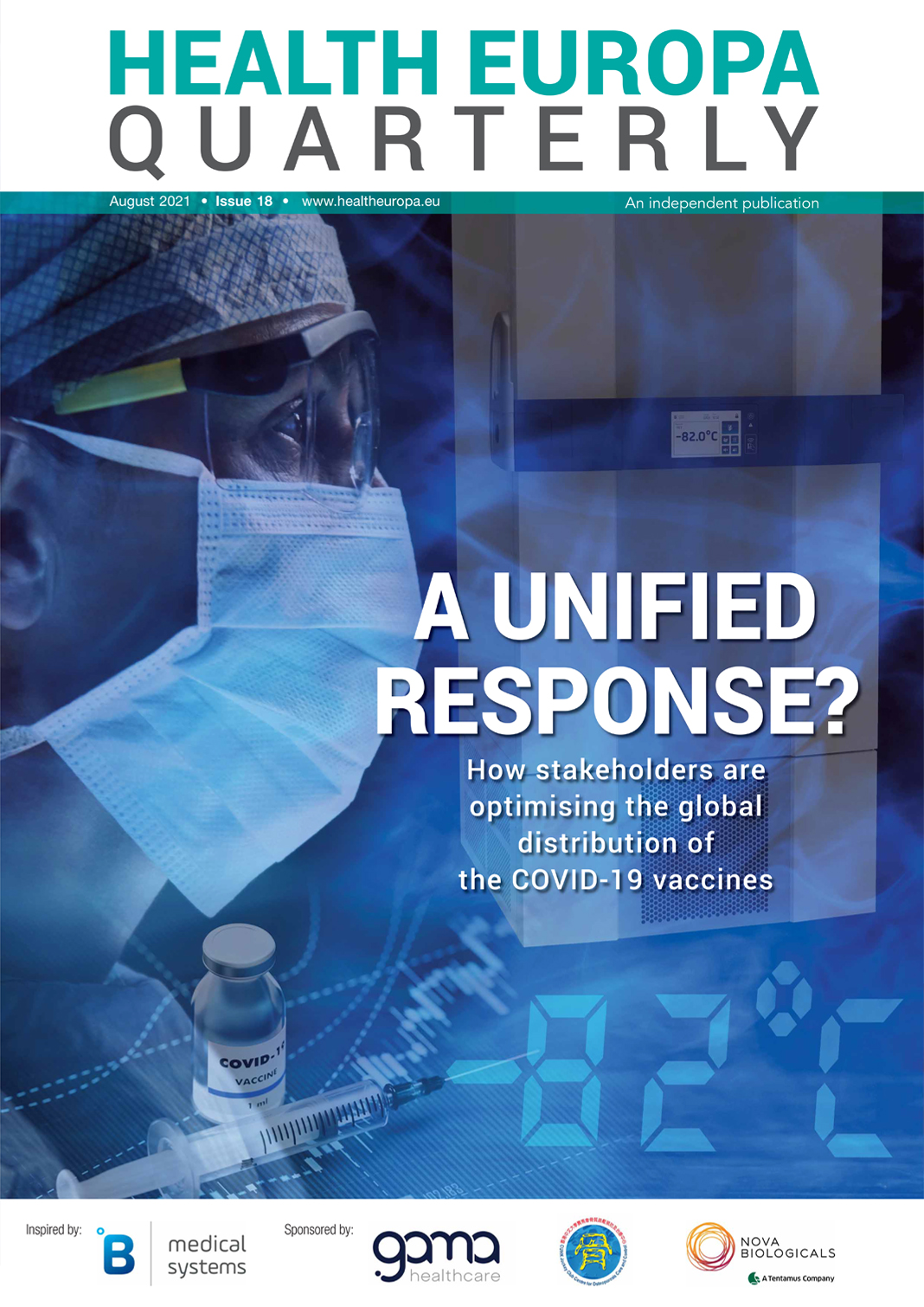Welcome to Health Europa Quarterly Issue 18, which looks at the ever-changing updates and response to COVID-19; covering everything from digital health to gender inequalities.
As life starts to return to some semblance of normality, it is questionable how and when our healthcare systems will be emancipated from the grapple of COVID-19. Vaccination programmes have certainly offered some respite from the pandemic and have proved successful in lowering the risk of hospitalisation for the most vulnerable. As I write this, figures from Our World in Data reveal close to 30% of the world’s population have now received at least one COVID-19 vaccine, yet only 1% of people have received at least one dose in low-income countries. Healthcare disparities remain a major concern in the equitable access to vital medicines and equipment with many countries struggling to cope with the onset of new variants and logistical quagmires relating to vaccine cold chains. The global initiative, COVAX aims to make two billion vaccines available by the end of the year but despite pledges from some wealthier nations to help facilitate vaccine supplies, some reports claim it could take as long as two years for people in the world’s poorest countries to receive a vaccine.
Standardised regulations for international travel have also become a contested issue in recent months with inconsistencies in what countries deem acceptable for incoming travellers. As a foreword to this issue, we hear from Nathalie Moll, Director General of the EFPIA about why cross-border collaboration and standardised pandemic preparedness must be instigated moving forward to ensure existing health inequalities are suitably addressed and reduced.
The implementation of robust infection prevention and control measures continues to be a focal point as pressures mount on already stretched healthcare systems around the world, even more so as the pandemic presents new long-term challenges. We hear from the Honourable Mark Dybul MD who tells HEQ about the findings of the recent Independent Panel for Pandemic Preparedness and Response and the lessons we can glean from this pandemic to prevent another. For the present, strategies to treat those suffering from long COVID must also be addressed. Following a retrospective cohort study, Dr Amitava Banerjee from the University College London explains why improved diagnostic procedures and interdisciplinary care for long-COVID sufferers must be part of clinical strategy for COVID moving forward. The European Centre for Disease Prevention and Control (ECDC) also sheds light on testing and contact tracing tools, their benefits, and limitations.
The secondary effects of the pandemic have undoubtedly disrupted vital access to care for non-COVID related health conditions. An ever-growing backlog of clinical appointments and a resilience from patients to attend in-person appointments has accelerated Europe’s adoption of digital technologies, seen most notably in the use of test and trace apps and telemedicine platforms. Yet, while digital technology has somewhat cushioned social isolation during the pandemic, education and the uniform adoption of novel digital solutions will be key to ensuring all of society can benefit from digital-enabled care. Our section on technology and innovation includes an interview with Chief Commercial Officer of Sky Medical Technology Andrew Thelwell who examines the future of the digital healthcare landscape. Elsewhere, we speak with Rachel Young from Sheffield Hallam University about the feasibility of virtual clinics to support the rehabilitation of long-COVID sufferers.
Later in this edition, our section on age-related conditions opens with an insightful interview with the Chair of the ‘Managing Adult Malnutrition in the Community’ panel Dr Anne Holdoway who reflects on the key risk factors affecting malnutrition and dehydration among the elderly and why holistic care structures are key to improving clinical outcomes. Subsequently, Todd Boudreaux from Beyond Type 1 explains the challenges surrounding equitable access to diabetes care.
COVID-19 has undoubtedly prompted progression in some areas but has had regressive consequences in others. Peggy Maguire, Director General of the European Institute of Women’s Health, explains how the pandemic has exacerbated gender inequalities, highlighting a greater need for sex and gender considerations to be integrated across policies.
This issue closes with our Medical Cannabis Network section which includes an interview with the European Cannabis Association and Katya Kowalski of Volteface who shares her thoughts on innovation and advocacy.
These are but a few highlights of the features that can be found in issue 18 and I hope you will find them as insightful and engaging as I have in their creation.
Lorna Malkin
Editor
Health Europa Quarterly

